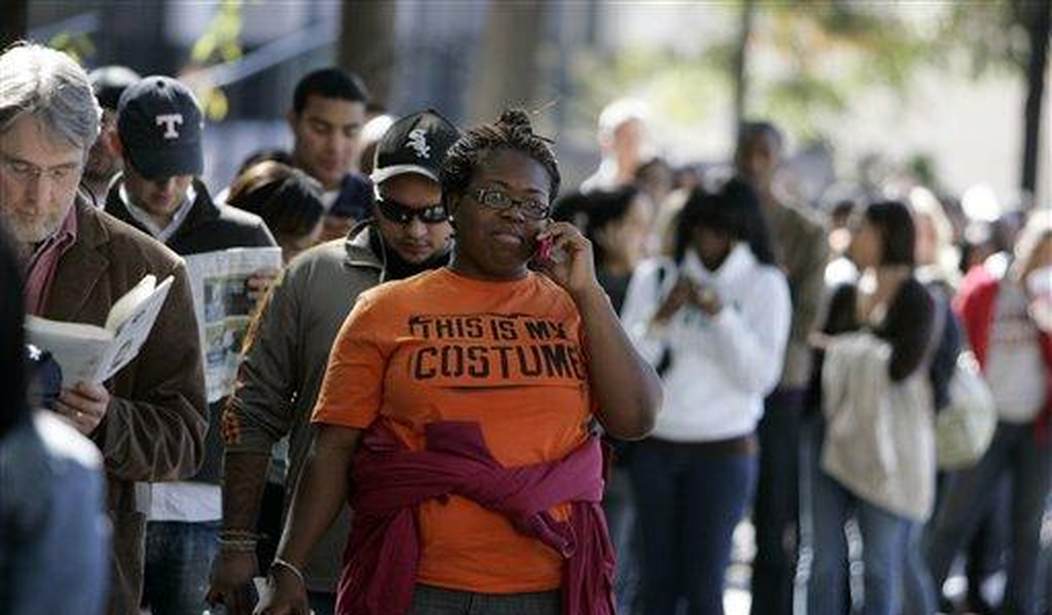Democrats and their allies in the media are very upset that Georgia’s new election law means activist groups are no longer allowed to hand out goodies to people waiting in line to vote. That is the only thing the new election security law prohibits. Yet Glenn Kessler at the Washington Post found it necessary to fact-check how this compares to other states’ laws. The media is giving this provision an absurd amount of attention, especially considering the fact that the law addresses the underlying reason activists feel the need to give out food and water — long lines.
As a general question, have you ever been offered sustenance while waiting to cast your ballot? As someone who has voted for the last 30 years in several states, including Georgia, my simple answer is: “never.” I asked the same general question to my Twitter followers, and it seems that even in states without specific laws prohibiting food and water distribution, approaching electors in line is not allowed, period. As the declaration in the Georgia legislation noted:
“(13) The sanctity of the precinct was also brought into sharp focus in 2020, with many groups approaching electors while they waited in line. Protecting electors from improper interference, political pressure, or intimidation while waiting in line to vote is of paramount importance to protecting the election system and ensuring elector confidence.”
Having voted in Georgia for the last ten years, I can say that this has never happened at a polling station I have used. I have voted early and on Election Day. According to an NPR analysis, my county has more electors per precinct than any other in the metro Atlanta area, except Forsyth. You may think that would mean we wait longer than the counties you see the viral pictures from. With several weeks of early voting, this has not been the case.
Biden Goes Berserk on Georgia Election Law
My county also went approximately 70% for President Trump in 2020. Republicans and right-leaning activist groups understood that the spirit of the existing law — which prohibits electioneering and providing anything of value — would make providing free food and beverage while approaching voters questionable.
Democrats and their aligned activists have no such guardrails. While Kessler notes that Montana prohibits candidates and campaigns from providing food, beverage, and other items, Georgia’s new law only allows poll workers to offer self-service water stations at the precinct. It permits activist groups to donate them to the precinct if they would like, as long as it is unattributed. Why there should be a distinction between a campaign and Stacey Abrams’ group, Fair Fight, approaching voters in line is something Kessler doesn’t address. Fair Fight has a clear political affiliation and Abrams campaigned actively for Democrats.
My county also has 992 more voters per precinct than Cobb, 970 more than Gwinnett, and 1,571 more than Fulton— counties where viral photos show long lines of voters. Forsyth is a big problem because, for some reason, their county elections officials let their precincts grow to over 8,000 voters per precinct when the other counties are between 3,000 and 5,000. The new law will fix that problem through a cap for electors per precinct and line monitoring enforceable by the state. The bill explicitly addresses this problem in the declarations that outline the issues it addresses:
“(7) Elections in Georgia are administered by the counties, but that can lead to problems for voters in counties with dysfunctional elections systems. Counties with long-term problems of lines, problems with the processing of absentee ballots, and other challenges in administration need accountability. Ensuring there is a mechanism to address local election problems will promote voter confidence and meet the goal of uniformity:”
So, fact-checking Kessler’s headline, “No, Delaware doesn’t specifically prohibit food or water at the polls like Georgia,” it deserves four Pinocchios. Georgia’s law, in fact, does not prohibit polling places from setting up self-serve water dispensers for voters. It simply prevents activists from delivering food and water while interacting with voters. Kessler also never provides any evidence that food and water are regularly supplied in Delaware. My bet is that they aren’t. If Georgia activists are concerned about the nutrition and hydration of voters waiting in what should be shorter lines, they should donate food and water to the precinct. They won’t because that was never the purpose.
Or, better yet, these activists could be a part of the solution and volunteer to be poll workers. Often the reason there are fewer precincts in Georgia counties is because of a lack of volunteers to work the polls. They still won’t be able to electioneer or wear campaign-branded items, but it would solve the underlying problem. However, that is not their goal. The “voter suppression” narrative requires long lines, so they like them. Fixing them takes away their viral photos—and that is what they are really upset about.










Join the conversation as a VIP Member